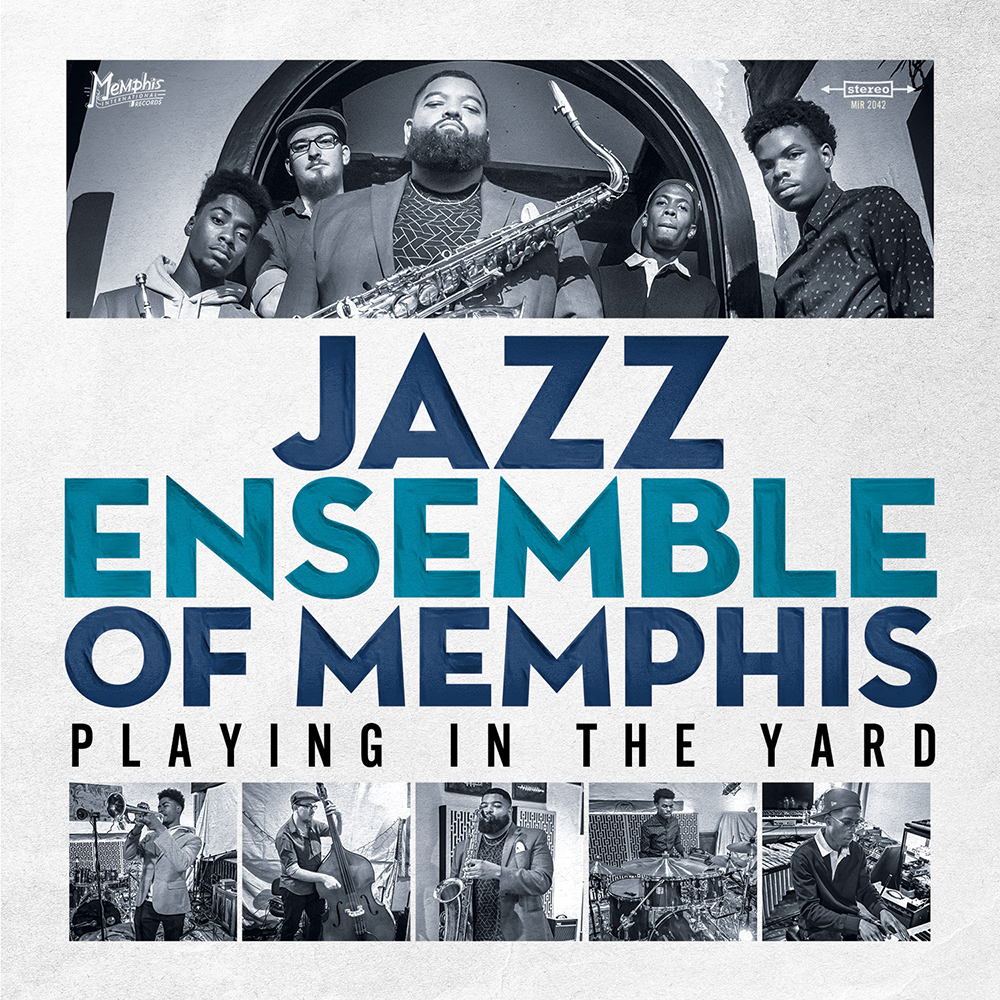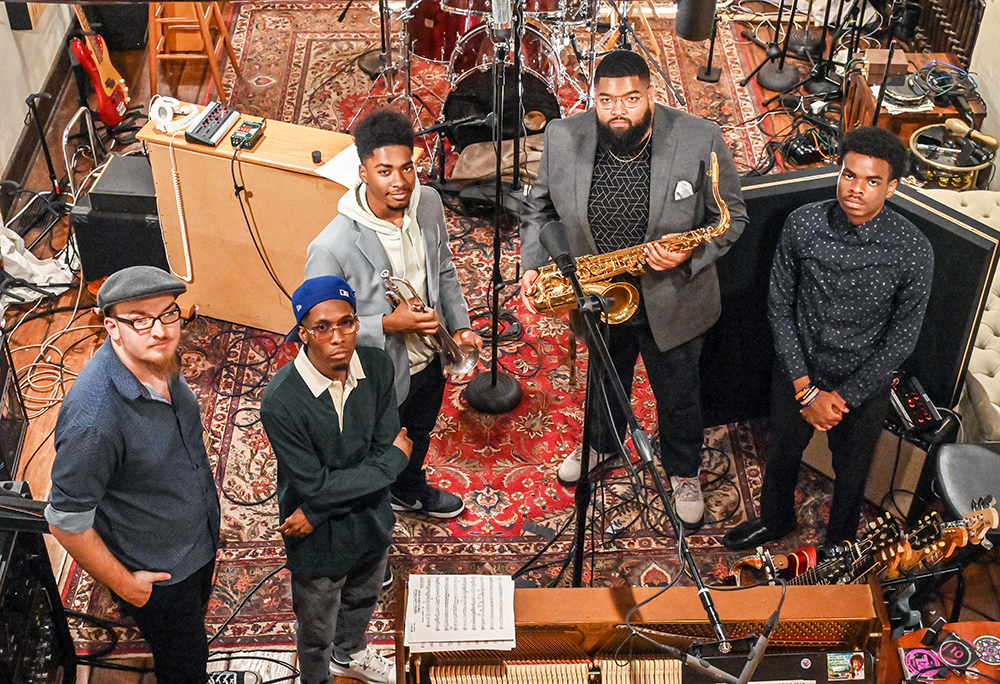Sometimes the best way to champion the music of today is by looking to some milestone from the past. Take the experience of David Less: Having worked in and around Memphis music for half a century, writing dozens of articles and the book Memphis Mayhem, promoting shows, producing records, he’d known about an especially rare Memphis jazz LP for some time. “Fred Ford had told me about it in 1975 or ’76,” he says, “and told me what a great record it was. I always wanted to hear it, but it was very hard to find.”
So potent was the album’s music that when Less finally got a copy, he was motivated to produce one of his own.
The legendary album in question? Young Men from Memphis: Down Home Reunion, released in 1959 on United Artists Records, for which the groundbreaking producer Tom Wilson assembled a band that reads like a Memphis jazz who’s who: on alto saxophone, Frank Strozier; on tenor, George Coleman; on piano, Phineas Newborn Jr.; on guitar, his brother Calvin; on bass, Jamil Nasser; on drums, Charles Crosby; and on trumpet, Louis Smith and Booker Little.
“It featured the great Memphis jazz players when they were young and just getting to New York,” says Less. “That group of people later became very well-known, but at the time they were not, so the record went into obscurity.”
Other Memphians also knew of the album. “Johnny Phillips, whose father owned [record distributor] Select-O-Hits and later bought my record company, Memphis International Records, had heard it,” recounts Less. “In fact, Johnny kind of grew up listening to it. So when I found a copy, Johnny and I and his son Jeff, who owns the label, started talking about doing an updated version of this.”

This April 2nd, at a Memphis Listening Lab event from 6-8 p.m., the world will first hear the full realization of that thought, Playing in the Yard by the Jazz Ensemble of Memphis (J.E.M.). (It will be officially released on CD and vinyl three days later.)
Just as Wilson had done, Less set out to recruit a band. “First of all, we approached the teachers, where it all comes from,” he says. “We called Sam Shoup, Gary Topper, Steve Lee, Michael Scott … you know, the guys! And we found these five players. Some of them knew each other. Most of them didn’t.”
As the sessions for the album unfolded, the players developed a powerful group chemistry. Tenor saxophonist and flautist Charles Pender II, a University of Memphis alum, was the senior member of the group, 26 at the time. His grandfather, E.L Pender, taught such greats as Maurice White, David Porter, and Booker T. Jones. Keyboardist and vibraphonist DeAnte Payne, 25, a standout member of James Sexton’s band, plays the vibes with a breathtaking, playful dexterity. Bassist Liam O’Dell, 21, is an Arkansas native and University of Memphis graduate who made a splash locally before pursuing a master’s of jazz performance degree at the University of Texas at Austin. Trumpeter Martin Carodine,19, came to the sessions from the University of Miami. And drummer Kurtis Gray, 17, is, in Less’ opinion, “an absolute savant.”
On the title track, there’s a notable cameo from the old guard. “Jim Spake is on the first song, playing soprano,” says Less. “I brought Jim in because I was afraid that they would not know where we set the bar for this record. I wanted them to understand that this is the best saxophone player in town. I wanted to put them with him, playing at that caliber, from the very first song. And so we cut ‘Playing in the Yard,’ which is by Sonny Rollins.”
The bar clearly set, the ad hoc quintet shines through the rest of the album. The Ellington staple “Things Ain’t What They Used to Be,” also featured on Down Home Reunion, is the clearest echo of that 20th-century predecessor, while other tunes, like Willie Mitchell’s “The Crawl” and Dan Penn’s “The Dark End of the Street,” situate the album squarely in Memphis. Payne’s vibraphone casts a spell on “When You Wish Upon a Star,” a tune that’s reprised at the end as a pensive arco solo by O’Dell. The album feels like an instant classic.
While clearly delighted, Less is not surprised by the results. “Memphis is a jazz city,” he says. “Jazz is just as good as it ever was in Memphis.”
